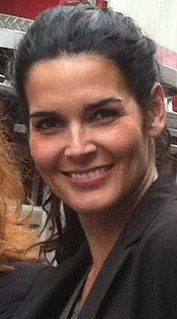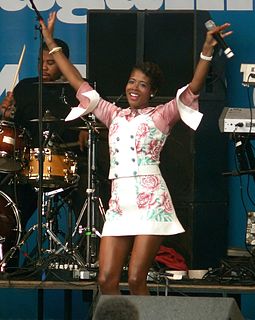A Quote by Siri Hustvedt
I'd been writing poems for many years, but most of them I didn't like. Then, when I was 23, I wrote one I did like, sent it to 'The Paris Review' - the highest publication I could think of - and they accepted it. No other moment in my literary life has quite come close to that.
Related Quotes
I was writing everything. I grew up in Albany, New York, and I was never any farther west than Syracuse, and I wrote Westerns. I wrote tiny little slices of life, sent them off to The Sewanee Review, and they always sent them back. For the first 10 years I was published, I'd say, "I'm a writer disguised as a mystery writer." But then I look back, and well, maybe I'm a mystery writer. You tend to go where you're liked, so when the mysteries were being published, I did more of them.
We have just had the most amazing time. Every now and then, we'll come across a review where the person didn't like it and we're like, "What? Really? How could you not like it?" All of us like it so much, and we have such a great time at work. We've just been really blessed, and we're all standing here going, "Wait a minute, how did this happen?" It's been awesome.
My mother had died when I wrote my first book. I was twenty-seven, so it was right at the beginning of my writing life. I don't know if she had lived, if I would have done it, certainly not quite like I did. But, you can't rethink it. You wrote what you wrote, it meant something to other people, and that's your good.
I always did drawings. Then, few years ago, I started working with large-scale paper. It's an extension of performance, because the pieces are the size of my full body. I use pencils, acrylic, watercolors, and I also incorporate textual messages. I did most of them in a monastery in Spain at the top of a mountain. I lived there a bit like a monk. I meditate quite often. At night, which is when I like to work, I like to think I have conversations with Francisco Goya. He died so many years ago, of course, but somehow, his ghost is always with me.
If you push in every time there's a big moment, then the tenth time you push in, you're not going to get the same effect. Or if you have too many close ups, then when you have a big moment and you want a close-up in order to make a point, it doesn't mean anything because you've already been doing close-ups. It's like writing in all capitals. Then after a while that doesn't mean anything. So, just because you can do something with a camera doesn't mean you should.
Metallica came along for me at a time and had an affect on me that I feel is the most pivotal moment of my life. I don't think there's been anything else that's even come close that's affected me in the way that that band did when I was a child when I was 11 or 12 years old, and where it went from there.
I have been trying to think of the earth as a kind of organism, but it is no go. I cannot think of it this way. It is too big, too complex, with too many working parts lacking visible connections. The other night, driving through a hilly, wooded part of southern New England, I wondered about this. If not like an organism, what is it like, what is it most like? Then, satisfactorily for that moment, it came to me: it is most like a single cell
In the ordinary jumble of my literary drawer, I sometimes find texts I wrote ten, fifteen, or even more years ago. And many of them seem to me written by a stranger: I simply do not recognize myself in them. There was a person who wrote them, and it was I. I experienced them, but it was in another life, from which I just woke up, as if from someone else's dream.







































